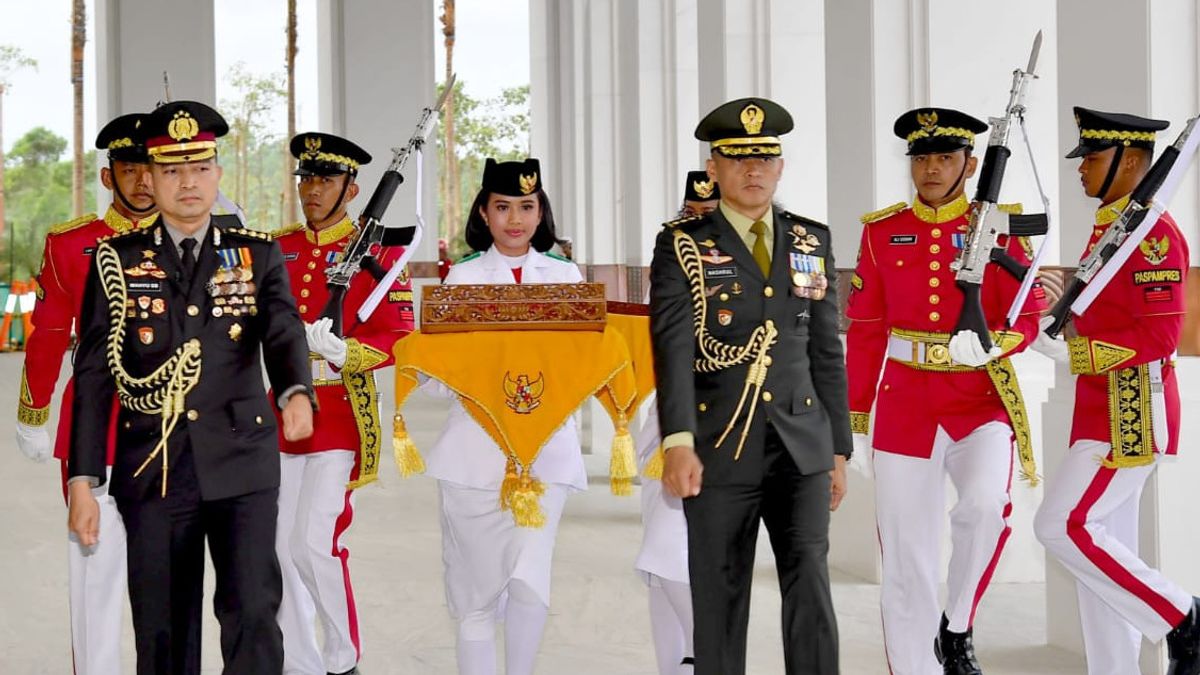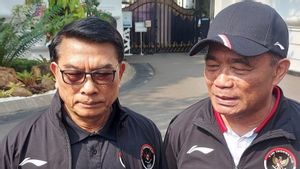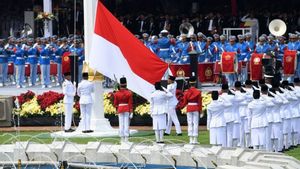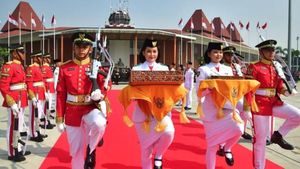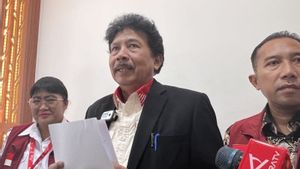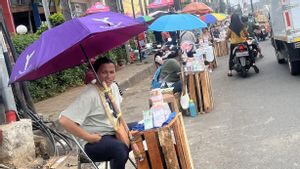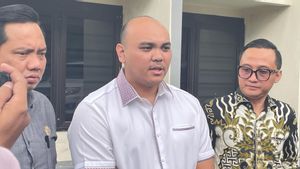JAKARTA - The House of Representatives strongly criticized dozens of members of the women's national Heritage Flag-raising Troop (Paskibraka) in 2024 who released the headscarf during the inauguration last Tuesday. Commission II of the Indonesian House of Representatives plans to summon the Pancasila Ideology Development Agency (BPIP) as an institution that now has the authority to establish and foster Paskibraka for the RI Anniversary Ceremony.
In his clarification, the Head of BPIP Yudian Wahyudi said that the purpose of the women's Paskibraka members to remove the hijab was to raise the values of uniformity in raising the flag. If in previous years the women's Paskibraka was still allowed to wear a hijab, this year BPIP decided to uniform the fabrication and appearance of Paskibraka 2024.
The provisions are contained in the Circular Letter of the Deputy for BPIP Training Number 1 of 2024. In the circular, there is no choice to dress in the hijab for members of the 2024 Paskibraka. "This is a statement that injures the public. We have advanced far by giving the rights of all religious adherents to carry out their beliefs," said Member of Commission II DPR RI, Mardani Ali Sera, Thursday 15 August.
The removal of the headscarf for members of the 2024 National Paskibraka during this inauguration became a polemic. Criticism came from the public to various figures, including regional leaders who sent representatives to members of the National Paskibra.
SEE ALSO:
Although BPIP stated that there was no coercion for members of the Paskibraka Muslimah to wear the headscarf, they first signed a statement letter regarding their willingness to comply with the regulations for the formation and implementation of Paskibraka's duties before releasing the hijab.
Parents whose children took off their headscarves also expressed disappointment over the incident. Mardani stated that the uniformity of Paskibraka, which did not accommodate clothes with a headscarf, did not reflect the values of Pancasila.
"In Pancasila, every individual has the right to carry out their religion according to their respective beliefs. The rules made by BPIP are like there must be a 'force'," explained the legislator from the DKI Jakarta I electoral district.
"And the 'force' to remove the headscarf can be considered a violation of religious rights," continued Mardani.
Mardani added that the headscarf for many Muslims is considered as part of self-identity and expression. By 'forcing' someone to remove the headscarf, it means limiting the freedom of citizens to express themselves.
"The children of Paskibra members as well as others must be protected by their rights. Including wearing a headscarf," said Mardani.
Commission II of the DPR as a partner of BPIP also highlighted an explanation from the Head of BPIP Yudian Wahyudi who said that the uniforming of Paskibraka clothing departed from the spirit of Bhinneka Tunggal Ika which was initiated by the nation's founder and the first president of the Republic of Indonesia, Soekarno.
The values brought by Soekarno, according to Yudi, are unity in uniformity. BPIP translates the gap in the form of uniform clothing, especially because this Paskibraka member will serve as an army.
Mardani reminded, Bhinneka Tunggal Ika which means 'different but still one' means diversity. BPIP rules are considered to be contrary to the values of Bhinneka Tunggal Ika.
"Bung Karno really appreciates diversity, so don't get me wrong," he said.
Although in the end, the Palace ensured that Paskibraka members could still wear the headscarf during the 79th Indonesian Independence Day ceremony in the capital city of Nusantara (IKN), Commission II of the DPR wanted to ask for an explanation from BPIP regarding the uniform regulation which drew polemics.
Moreover, the Paskibraka members who took off the headscarf were asked by BPIP to put their signature on a stamp of Rp. 10,000 which indicates that the statement is official and binding in the eyes of the law. Commission II of the DPR hopes that the BPIP regulation regarding the Paskibra uniform can be revised so that problems like this do not happen again in the future.
"I will propose that the DPR summons BPIP. There needs to be lessons," concluded Mardani.
The English, Chinese, Japanese, Arabic, and French versions are automatically generated by the AI. So there may still be inaccuracies in translating, please always see Indonesian as our main language. (system supported by DigitalSiber.id)
